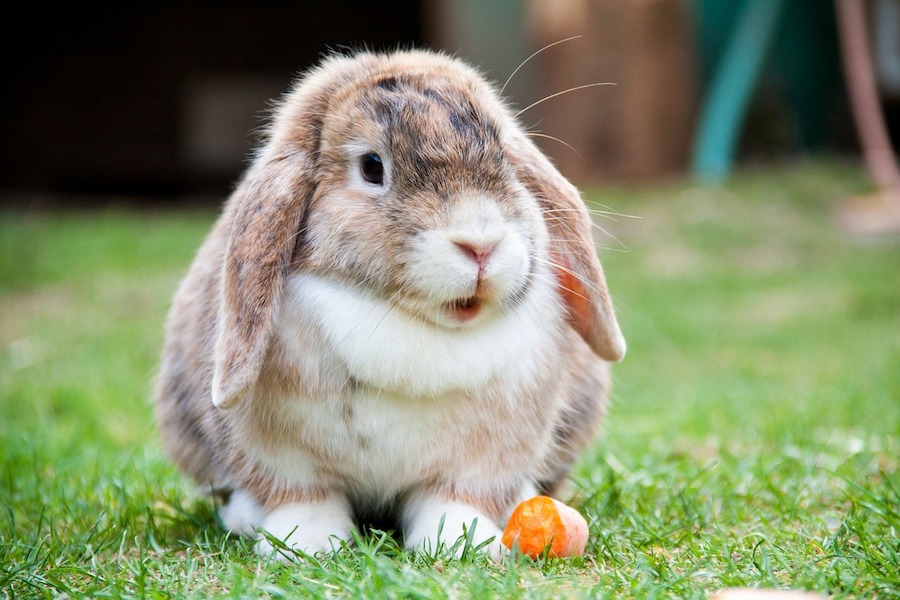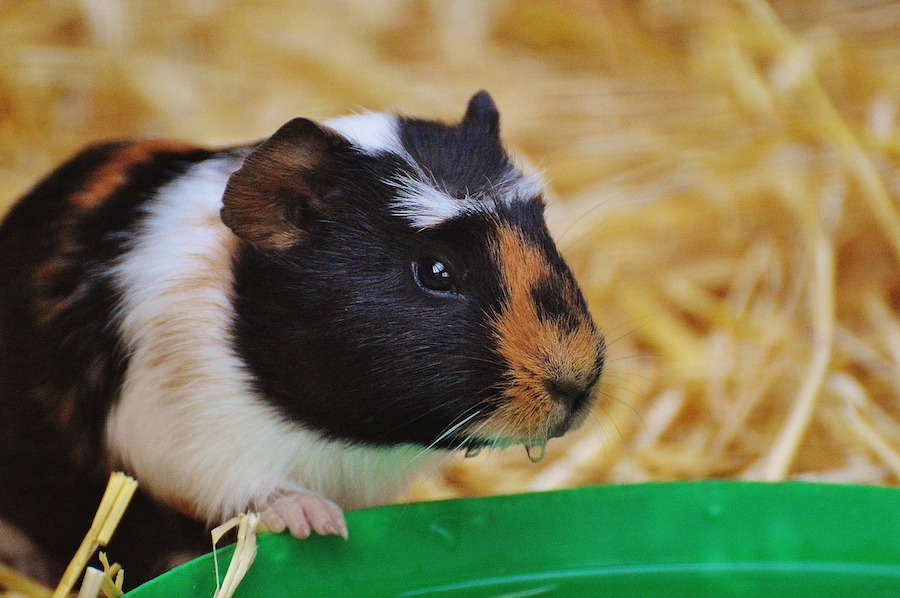Rabbits and other rodents, such as guinea pigs, have open rooted teeth, which means they constantly grow.
Because of this they have very specific dental requirements which, if they are not met, can lead to further health problems.
Read on for our five top tips for keeping your rabbit’s teeth trim and tidy!

Hay
Hay is not just bedding for rabbits and guinea pigs, it should also make up around 80-90% of their diet.
They are natural grazers and the constant chewing of fibrous plant matter helps wear down their teeth, as well as assisting their gut health and providing important nutrition. As well as scattering hay in and around their home for them to make a cosy nest from, make sure to provide them with a clean source of hay that hasn’t been sat on!
Hay racks or interactive hanging feeders are a great way to provide fresh hay and is great enrichment.
There are many different types of dried grasses, plants and herbs on the market that will make a welcome addition to your small furry’s diet.
Hay should not be confused for straw, which is tougher and less nutritious.
Eat Your Veggies!
Supplement their diet with a variety of vegetables, herbs and fruit.
Not only are these tasty treats that your pet will love you for, but they are very nutritious and will help maintain good dental health.
Fresh veggies should make up around 5-15% of their diet, favouring dark leafy greens such as kale, and only occasionally including sugary fruit like apple. Carrots being good for bunnies are a common misconception; they are actually fairly high in sugar and should be offered sparingly.
The remaining 5% of their diet should be made up of a good quality pellet food, although these diets don’t tend to do much for their dental health.
Gnawsome Toys!
Rodents should have access to a variety of solid chews at all times.
This will help satisfy their need to chew, provide enrichment and keep their teeth trimmed and healthy.
Wood is an effective and natural solution, but try to provide a variety of types and textures; each animal will have their own preferences. Apple, willow and orange branches are good examples and can be given fresh or dried.
There are a variety of toys and chews available from many pet shops but avoid plastic toys as they can splinter and cause injuries if chewed. These types of toys should only be used under strict supervision.
Know the Signs
Familiarise yourself with the signs of dental disease in rodents so you can quickly identify if your pet has a potential problem.
If caught early, dental issues are usually very treatable but if left can have knock on health effects that will cause complications.
Going off certain foods, dribbling, weight loss, swellings around the jaw or nasal discharge are all common signs to look out for.
Sometimes even with correct diet and chews, if the teeth are not lined up correctly dental treatment may be required.
If you notice any of these signs and are concerned, contact us and book in to see one of our vets for an examination.
Get Checked!
Just like cats and dogs, we recommend that pet rodents get at least annual, if not six monthly health check ups.
Rabbits should get annual vaccinations against myxomatosis and VHD, and the vet will give them a full health check during this appointment.
We also offer free of charge six monthly health check ups with a nurse for rabbits and guinea pigs where they will be given a full examination including a dental check.
If the nurses notice any abnormalities they will be referred on to a vet. With their training, the nurses may be able to pick up on signs that you may not have picked up on.
Please do call us today on 01435 864422 and speak to a member of our team to book in.


